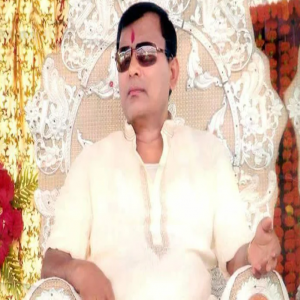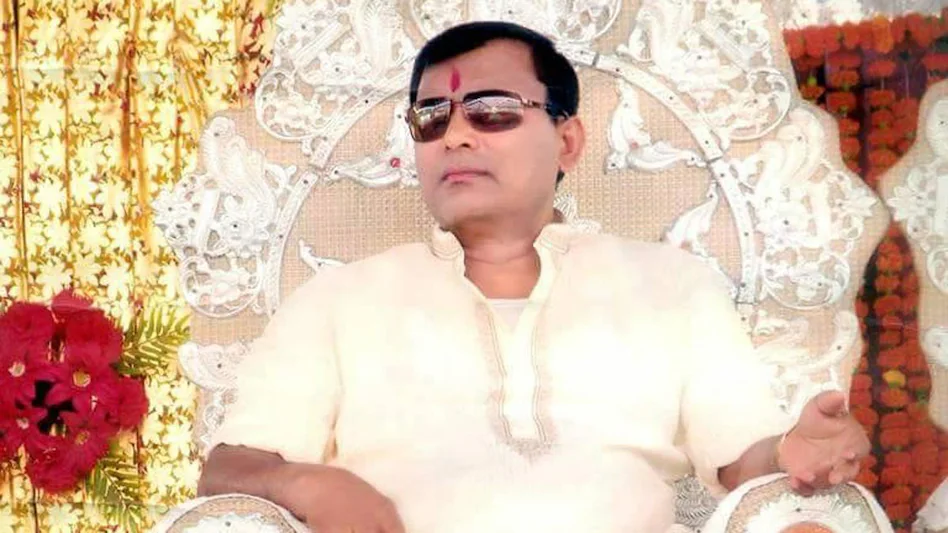
.png) Ram Puniyani
Ram Puniyani

In Hathras in Uttar Pradesh, in a stampede, nearly 121 people died. Most of these were women, mostly Dalit and poor. It was at the Satsang (Holy Discourse), organised by Narayan Sakar Hari, who goes by Bhole Baba. He was earlier in the police force. It is alleged that he had charges of sexual molestation against him. Later, he took voluntary retirement 28 years ago and turned to preaching. There was an incident when he claimed that he could bring back the life of a girl who had died of cancer. The girl could not be revived, and her stinking body made the neighbours complain to the police. Even with this background, he later became a successful Baba (god-man) with increasing followers, wealth, and Ashrams.
In the current episode, while many subordinates have been named and are to be charged, Bhole Baba is not on the list of those who are guilty. The reason for the stampede was the propagation of the idea that the earth where Baba treads is a cure for diseases. As he left Satsang, people rushed to collect the earth where he had put his feet. A stampede took place, and people died in the process. The popularity of the Baba can be gauged from the fact that the organisers sought permission for 80,000 people but 2.5 lakh people turned up.
As such, the Baba phenomenon is neither unique nor exclusive to India. However, their following has gone up in recent times. While some babas come to be known for specific reasons, varied breeds of them are scattered all over the country. Notorious ones like Asaram Bapu and Gurmeet Ram Rahim Insan are cooling their heels in jail for charges like rape and murder. The other successful Babas like Baba Ramdev has been reprimanded by the Supreme Court for his confident undermining of modern medicine; Sri Sri Ravishanker was involved in damaging the ecology of river Yamuna, and Jaggi Vasudev's Ashrams have various criminal charges as well. Common among these Babas is their astounding self-confidence, wealth and promotion of blind faith.
In India, while strict correlations are difficult, it can be safely said that their prowess and impact have risen during the last few decades. It will be challenging to correlate their increasing prowess with the rise of politics in the name of religion. Indeed, charismatics and holy preachers exist in other countries, but the impact of such people is phenomenal in India in the context of increasing communal and social divide. Though these preachers wear the garb of religion, they do not belong to the formal clergy, which is part of institutional religion. Most of them are self-made, and their intelligence in mind reading and taking advantage of the weaknesses of followers is phenomenal.
The other side of this is why people are thronging to them. Beyond every Baba's salesmanship, the followers have weaknesses that land them in the lap of these frauds. Mostly, people with severe problems that are not easily solvable look for soothing words, somebody who gives them confidence and tells them that their problems will be solved by the earth where Baba treads, or by subjugating themselves to the Baba, or by following some advice which Baba gives etc. The followers throng these Babas mainly due to their own insecurities. There are many other aspects to the success of Babas, their nexus with the political class being one such. For example, Gurmeet Ram Rahim has been mostly on parole, especially with elections due. One recalls that Manoharlal Khattar took his whole Cabinet to Gurmeet to take his blessings.
The insecurity of the followers is the key to understanding their psychology. The more insecurity, the more the submission to Baba, and the more common sense or rational thinking is given a total go-bye. The insecurity aspect can be properly understood when we see the global scenario. In countries where economic and social insecurity is less, religions are seeing a decline in their active followership. A key finding from Global Research by PEW shows that "The United States is far from alone in this way. Western Europeans are generally less religious than Americans, having started along a similar path a few decades earlier. And the same secularising trends are found in other economically advanced countries, as indicated by recent census data from Australia and New Zealand.
Centre for Political Studies Michigan's Inglehart, in "Giving up on God," (pages 110-111), tells us "From about 2007 to 2019, the overwhelming majority of the countries we studied—43 out of 49 became less religious. The decline in belief was not confined to high-income countries and appeared across most of the world. Growing numbers of people no longer find religion a necessary source of support and meaning in their lives. Even the United States—long cited as proof that an economically advanced society can be strongly religious—has now joined other wealthy countries in moving away from religion."
Combating this is not easy. Contrary to the Values of the Constitution, Article 51 A (h) under the Fundamental Duties states, "[It shall be the duty of every citizen of India] to develop scientific temper, humanism and the spirit of inquiry and reform." Babas flagrantly violate this clause, and those protecting or promoting them do the same.
In India, at the social level, there are active groups who oppose the Babas scattered all around by practically exposing them, especially their tricks of taking out ash from their hands or walking on fire. Maharashtra has the Andhshraddha Nirmulan Samiti (Committee for Eradication of Blind Faith) associated with Dr Narendra Dabholkar. He was brutally murdered by activists of conservative groups, probably like Sanatan Sanstha. Similarly, the murders of Com Govind Pansare, Gauri Lankesh and Prof Kalburgi were also done by similar forces. After the murder of Dr. Dabholkar, the Maharashtra Assembly passed a law against blind faith and magic remedies.
We need to have similar laws nationwide and promote scientific temper. At the core, can we march towards social and economic security for all? The present system, in which the poor are becoming poorer, and the rich are becoming richer, needs to be substituted by Mahatma Gandhi's vision, in which social policies are planned, keeping the last person in line. That alone can bring in a sense of security in society.